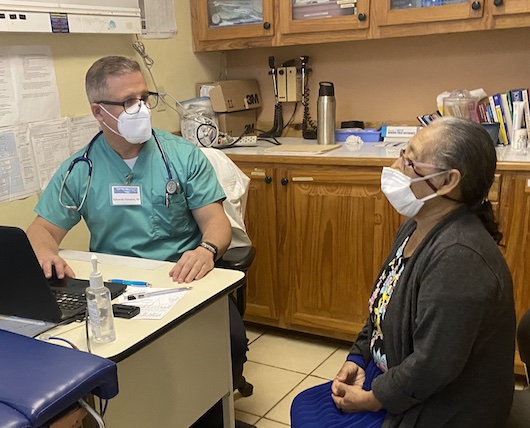Eduardo Navarro is no stranger to international healthcare nor serving marginalized communities. Born in Cuba and moving to Venezuela and Uruguay before immigrating to the USA, Eduardo observed the inequality that impoverished people so often face. After a stint working with rural, impoverished communities in Venezuela, Eduardo knew he wanted to pursue a career that focused on bringing quality medical care to all people. This passion led him to become an INMED Master’s Degree in International Health (MIH) learner, which includes a robust, service-learning experience.”
Eduardo Navarro selected Clinic Esperanza on Roatan Island, Honduras. Serving at one of the very few medical facilities on the island during a worldwide pandemic and after two major hurricanes, is not for the faint of heart. Nevertheless, Eduardo Navarro leaned into serving the community, treating many patients who were suffering from the psychological effects of the Covid-19 pandemic; namely anxiety and depression. Roatan Island is heavily dependent on international tourism and its economy was hit especially hard. “There is a strong relationship between poverty and poor health,” he explains. “Poverty brings poor health, and Poor health, in turn, traps communities in poverty.” Drawing on his prior study at INMED and his past experience with mental health, Eduardo gave several presentations to educate the staff on how to treat mental health illnesses and how to close the gaps between health and poverty.
During his time at Clinica Esperanza, Eduardo experienced the challenge of adapting medical treatment to whatever limited medications and skilled staff were available. He observes, “I learned how to handle certain endemic health conditions of the island, was able to exchange experiences and knowledge about my specialty, and above all feel the satisfaction of reaching those in need.”

